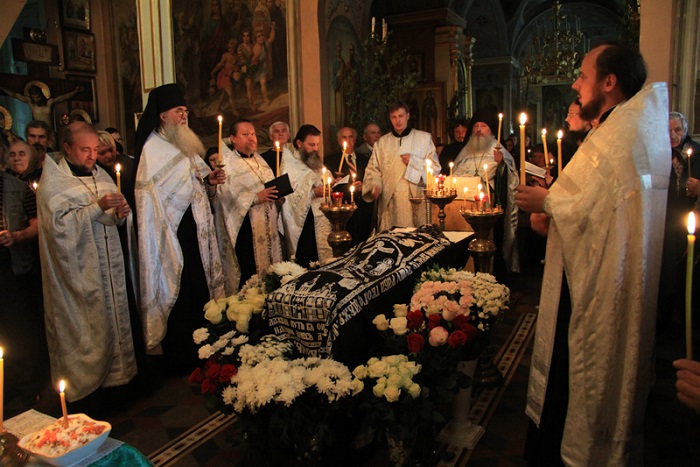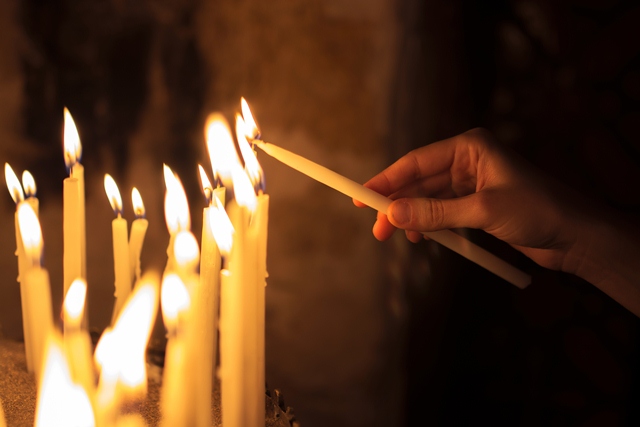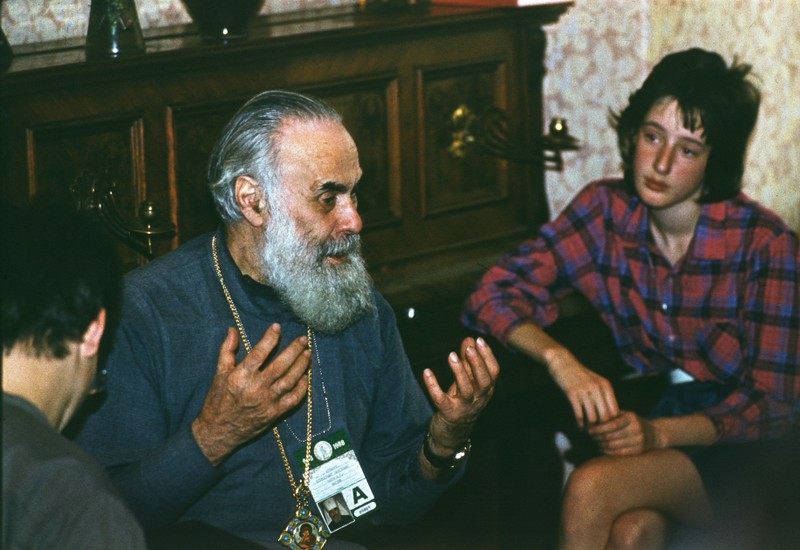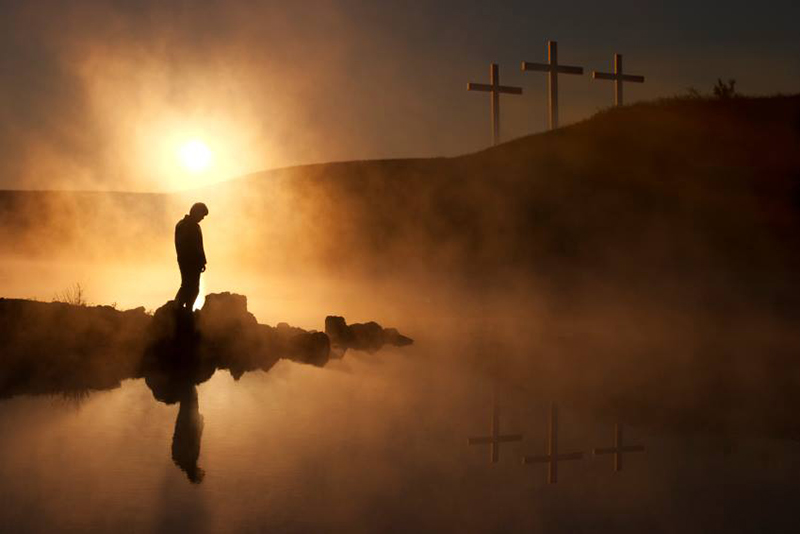
Our dead are like desperate rafters in a raging river. Our prayer for them is a lifeline that keeps them afloat. If the gates of eternity suddenly opened, we would see thousands or even millions of souls vying for a safe haven. How many hearts could remain indifferent to the lamentations of our brothers and sisters, to their silent cries for our prayerful intercession?
Here is a marvellous but true story from the life of a parish of our Church. It teaches us the importance of praying for the dead and reminds us of our connectedness to the afterlife. A parish priest in Lysogorka Village had just departed. A young priest came to replace him. Yet, at his very first liturgy, he fell dead while praying at the altar. Another priest arrived to take his place, but he also repeated the same fate. He was conducting a service. They had just finished chanting the Lord’s prayer and the Verse of the Communion, but the priest was taking suspiciously long to come out with the Holy Gifts. The church orderly went to look for him at the altar and found him dead in full vestments right in front of the altarpiece. Horrified at these strange deaths and uncertain about its probable cause, the people began to speculate that the parish was under some terrible curse. Rumors about the curse circulated in the neighbourhood. The parish was going without a priest. Nobody was willing to serve there in light of the recent events.

Finally, an elder monk volunteered to take the vacant position. “I have lived a long life, and have little left to live. So if I celebrate liturgy, and it becomes my last, at least no-one will be left orphaned,” he mused.
By the time of the Lord’s prayer, the elder became nervous and asked to open the side doors and the Royal Gates. As he was reading the Verse of the Communion, he saw a figure behind the altarpiece. As the figure was taking shape, the elder recognized the dark image of a priest in full vestments. He was tied up in chains hand and foot.
Trembling with fear, the elder was struggling to finish the prayer. Finally, he pulled himself together, gathered his strength and spirit, and came out to commune the faithful. Everybody saw that something was going wrong.
The ghost of the late priest was still standing in the same spot. With his hands still in chains, he was gesturing at a box inside the altar.
When the liturgy was over, the elder and the orderly opened the box. It was full of prayer notes for the dead. The late priest had been putting them away without reading them out at the liturgy as he should. He was hoping to do it later. The elder understood the cause of the vision. He held daily funeral services and read out the notes from the box.
On Sunday, he served the Liturgy of the Resurrection, commemorating the departed priest. At the chanting of the Verse of the Communion, the ghost of the dead priest appeared again. This time, it did not look tragic or fearsome as before. Its face was bright and cheerful, and it was not wearing any chains. The hieromonk partook of the Holy Sacraments, and the ghost came into motion, bowed to the ground before the celebrant and disappeared.
I pray that this example will convince us that praying for the dead benefits them and eases their plight. There is no better time to remind ourselves about it because the Holy Church is now celebrating the Meatfare Saturday of Remembrance of the Departed Parents. On this feast day, we come together at church to pray for our brethren who departed to eternity. Tomorrow, we remember the Second Coming of the Lord and the end of our world.
The Orthodox Church calls on its children to prepare themselves for the day of judgement. Essential to this preparation is our prayer to the Righteous Judge for our departed kin that their sins may be forgiven and that they may all have an untroubled journey from the dark underworld to the heavenly mansion of Our Father.
From our hearts, let us say pray to Our Lord Jesus Christ, “With the saints give rest, O Christ, to the souls of Your departed servants, where there is neither sickness nor sorrow nor sighing, but life everlasting.” Amen.
Translated by The Catalogue of Good Deeds



